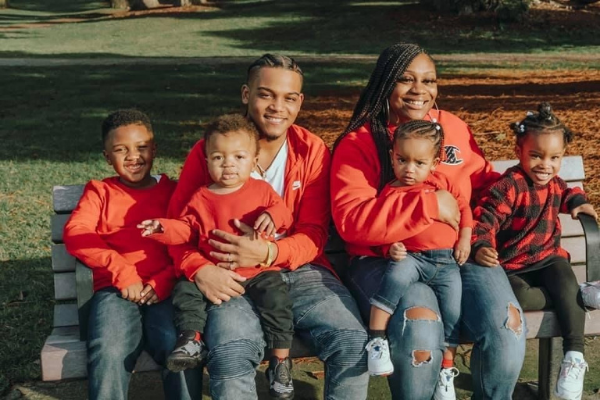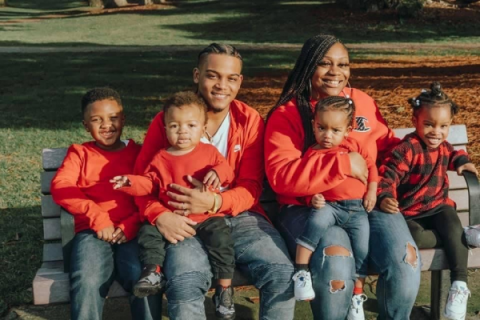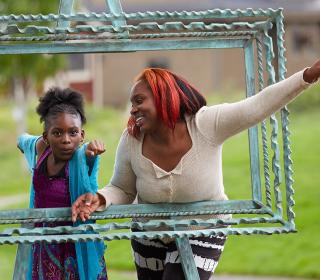WHAT IS BLACK WOMEN’S EQUAL PAY DAY?
August 3, 2021 was Black Women’s Equal Pay Day, the point in time when Black women catch up to the 2020 earnings of white men. Put simply, it takes Black women over 20 months to accrue the same income that a white man earns in a year, which will lead to them making nearly $1 million less over the course of their careers.
The reasons why Black women earn less are complicated. Black women are more likely to work in lower-paying service occupations. Black women in 2021 are also facing a long history of discrimination that they’re doubly impacted by because of their race and gender. Decades of discriminatory employment practices have created a pay gap that’s significantly wider for Black women than white women.
THE PAY GAP & A PANDEMIC
While COVID-19 has had wreaked havoc across all communities in a myriad of ways, BIPOC women have had to shoulder disproportionate economic effects of the pandemic recession.
For Black women, existing racial disparities and systemic inequities make navigating crises like COVID-19 increasingly difficult. During the pandemic, as jobs were lost and food insecurity rose, paying rent and taking care of families, which largely falls to women, was even more challenging.
MEET MONIQUE
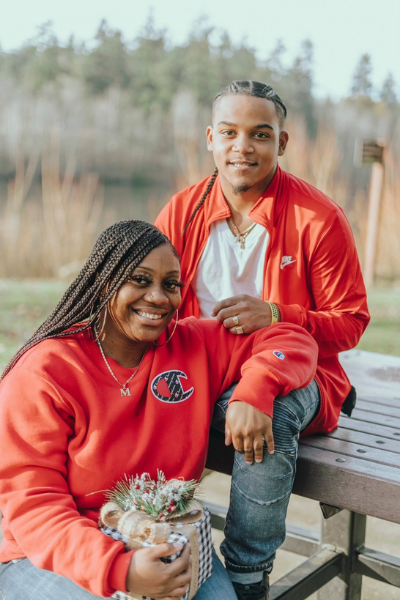
Monique faced barriers early in life and grew up with little family, institutional, or systemic supports. As a young adult she didn’t have a steady job, was in an abusive relationship, and struggled to find stability – then at 21, Monique was arrested. While incarcerated, she started to build a new path forward for herself and her children. She took college classes, parenting courses, and made plans for her re-entry.
After release, Monique turned to YWCA Seattle | King | Snohomish for the tools and resources she needed to take the next steps. She found stable housing and services at Passage Point, built her financial skills with Hope & Power, and improved her employability through Community Jobs. With the assistance of these YW programs, Monique built a safe home and financial security for her family.
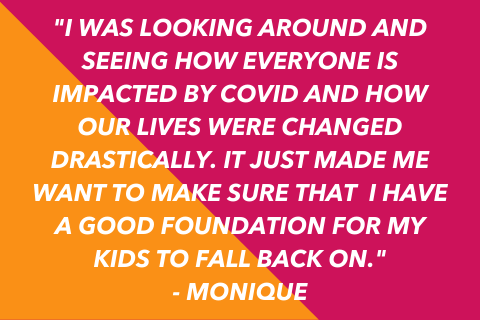
During the pandemic, she continued taking classes online and started her own home-based beauty business by funding it with her stimulus check. "COVID-19 gives us a different outlook and can light a fire under people," she says. Through YWCA's programs, Monique was able to stay employed full-time and in school during the pandemic. In the future, Monique dreams about opening a retail storefront and starting a nonprofit that will help at-risk youth overcome barriers to opportunity and thrive in life.
Monique is a mother, entrepreneur, and student persevering through this pandemic without losing sight of her goals for the future. This resilient woman is also 2021's recipient of the Women’s University Club “Women in Transition” scholarship, which she’s using towards completing her degree.
STOP THE GAP FROM EXPANDING
While the our community attempts to reopen safely in the midst of a pandemic, the long-term impact on women, especially BIPOC women, is far from being over. Without concerted effort and accessible resources for help, the gender and race pay gap will only deepen, leaving more and more Black, Indigenous, and Latinx women behind.
Help fund programs that support Black women like Monique and continue the conversation around closing the equity pay gap at YWCA’s Virtual Inspire Luncheon: Reclaiming Our Power on September 14, 2021.
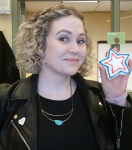
Annalee Schafranek is the Marketing & Editorial Director at YWCA. She contributes agency news, press releases, and media coverage to the website. Annalee’s educational and professional experience has always focused on the place where gender equity and media meet.
We share the stories of our program participants, programs, and staff, as well as news about the agency and what’s happening in our King and Snohomish community.
